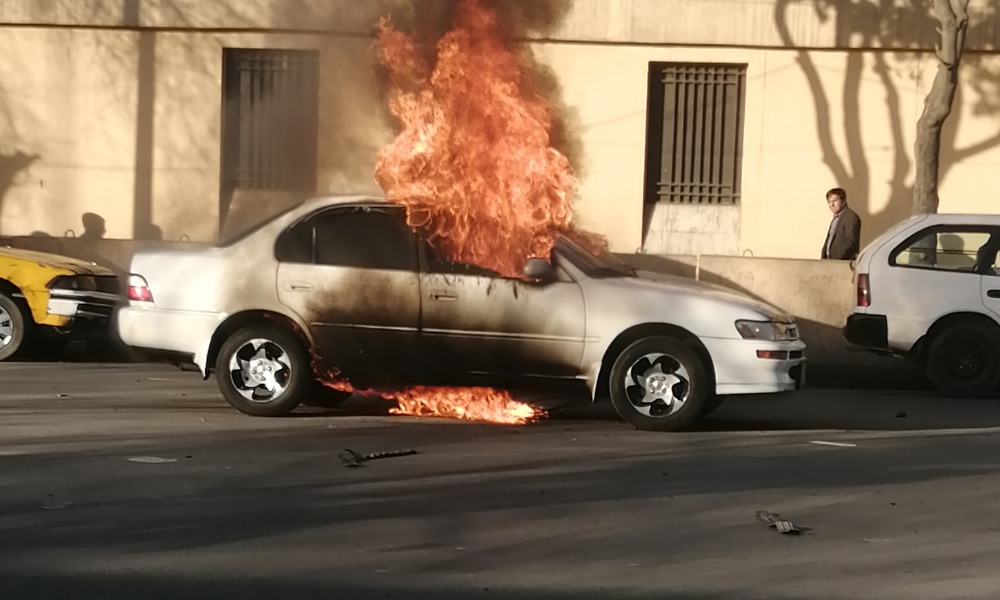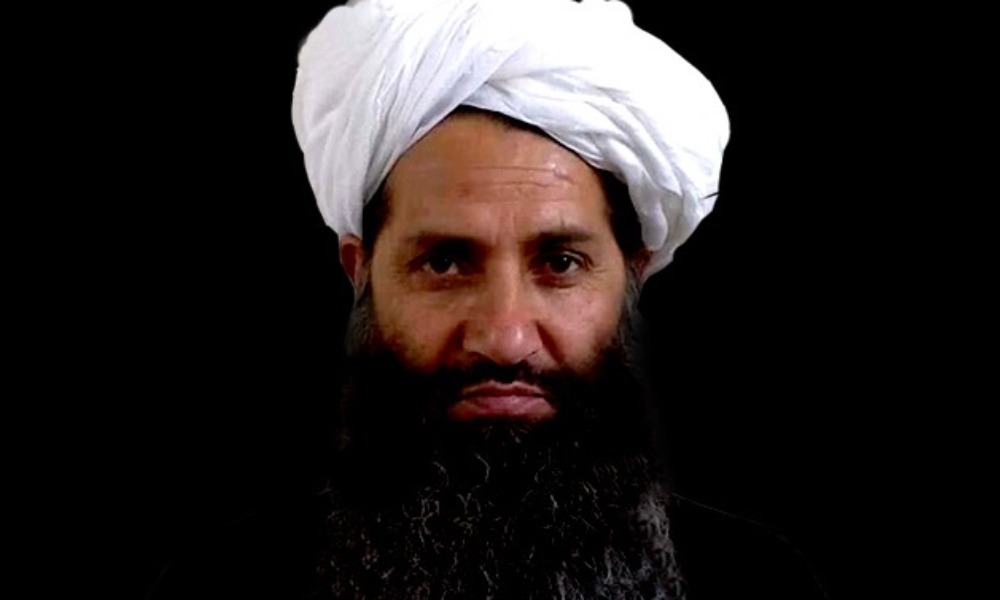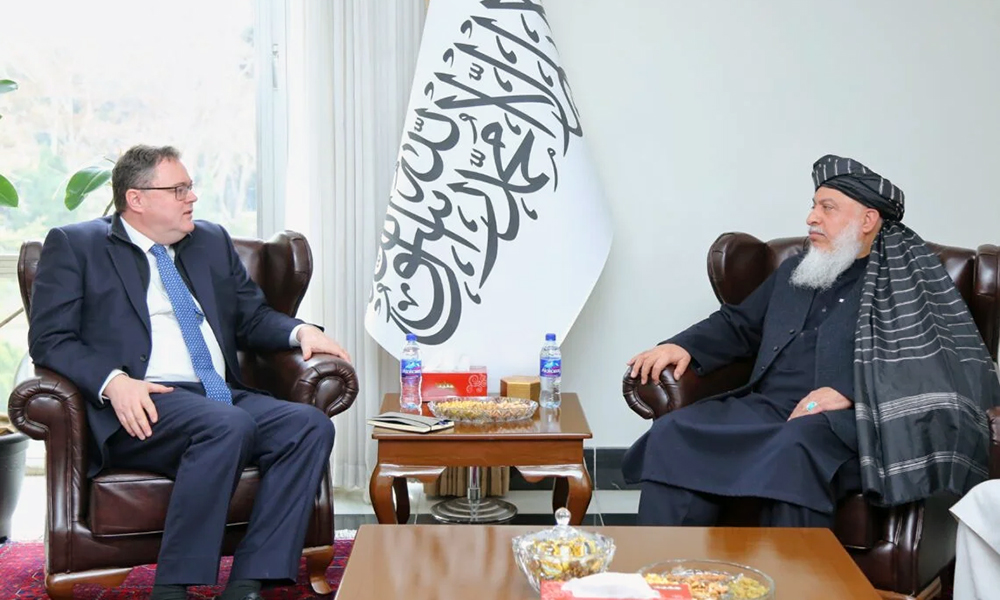Latest News
Targeted killings taking serious toll on civil society and media: UN report

The UN Assistance Mission in Afghanistan said Monday that human rights and media space in Afghanistan has contracted in the past few months as a result of the sharp increase in targeted attacks against professionals in these two sectors.
In a report issued Monday by UNAMA, analysis shows that since the start of peace talks in Doha, on September 12 last year, until January 31, 11 human rights defenders and media workers have been killed in targeted attacks.
The new report analyses data and trends connected to the killings and traces the changing patterns of attacks on these key sectors and provides recommendations.
UNAMA stated in the report that “this trend, combined with the absence of claims of responsibility, has generated a climate of fear among the population.”
In addition, research found that human rights and media space has contracted as a result, with many professionals exercising self-censorship in their work, quitting their jobs, and leaving their homes and communities with hopes it will improve their safety. Many, including high profile personalities, have fled the country.
“The killings have had the broader impact across society of also diminishing expectations around efforts towards peace,” a UNAMA statement read.
“The Afghan people need and deserve a flourishing civic space - a society where people can think, write and voice their views openly, without fear,” said Deborah Lyons, the Secretary-General’s Special Representative for Afghanistan.
“The voices of human rights defenders and the media are critical for any open and decent society. At a time when dialogue and an end to the conflict through talks and political settlement should be the focus, the voices from human rights and the media need to be heard more than ever before, instead, they are being silenced,” said the envoy, who is also head of UNAMA.
UNAMA stated that one of the key trends to emerge in the past few months is that attacks against representatives of the human rights and media sectors in Afghanistan are clearly “intentional, premeditated and deliberate targeting of individuals with perpetrators remaining anonymous.” This contrasts to previous years.
The report also records a total of 65 human rights defenders and media professionals killed in the period from 1 January 2018 to 31 January 2021; 32 from the human rights sector and 33 from the media.
Of these, 11 (five human rights defenders and six media) were killed in the four-month period from 1 October 2020 – 31 January 2021 alone, the statement read.
The report notes that as they work to provide timely information to the population of Afghanistan on a range of issues (including violations of international humanitarian law and human rights law), human rights defenders, journalists and media workers are far too often exposed to threats, intimidation, harassment, surveillance or arbitrary detention.
A series of recommendations to both state and non-state actors are contained in the report.
Recommendations made to the Afghan government include the establishment of an effective and cooperative national protection mechanism under the leadership of the Second Vice President Sarwar Danish.
Also for an adequate preventive framework, including special protective and proactive security measures for human rights defenders, journalists and media workers, to be put into place.
UNAMA also called for assurances that human rights defenders, journalists, and media workers can continue their legitimate rights to life, freedom of association, freedom of expression and access to information, as well as other fundamental freedoms, without fear of reprisal or attack.
Key among the recommendations was counter impunity, including by conducting independent, impartial, prompt, thorough, effective, credible and transparent investigations into killings and that genuine accountability, and prosecuting of suspects follow due legal process.
Recommendations to insurgent groups included the call for them to cease all killings of human rights defenders, journalists and media workers, in accordance with international human rights and humanitarian law.
For the Taliban in particular, UNAMA called on them to condemn, at the leadership level, the killings of human rights defenders, journalists and media workers.
UNAMA also called on the group to investigate cases where Taliban members are alleged to have been involved and hold to account Taliban members that order or implement the killings of human rights defenders, journalists and media workers.
The group was also encouraged to adopt, publicize and enforce policies that prohibit the killings of human rights defenders, journalists and media workers and to repeal existing policies (and refrain from adopting new ones) limiting civic space, including restrictions to freedom of association, the work of civil society and humanitarian actors, and freedom of expression.
The international community was also called on to assist with the problem.
UNAMA urged them to continue condemning the killing of human rights defenders and media professionals, and to underscore the importance of the role of human rights defenders and independent media for a unified, sovereign, peaceful and democratic Afghanistan.
UNAMA also encouraged the international community to increase support to programs that provide security, travel, financial, capacity building and other assistance to them.
Latest News
Human traffickers should be sentenced to 1 to 3 years in prison: IEA leader

The Leader of the Islamic Emirate has issued a decree instructing the Ministry of Interior Affairs to prevent human trafficking and to arrest and refer culprits to military courts.
The decree containing six articles says that that military courts should sentence human traffickers to one year in prison for the first time, two years if repeated for the second time and three years if repeated for the third time.
The ministries of Hajj, information, telecommunications, borders, propagation of virtue, as well as religious scholars are asked to inform the public about the dangers and adverse consequences of travelling through smuggling routes.
The decree comes as the rate of migration has increased following the political change in Afghanistan in 2021.
Latest News
Eight Afghan migrants die as boat capsizes off Greek island

Eight Afghan migrants died after a speedboat carrying migrants capsized off Greece's eastern island of Rhodes on Friday, the Associated Press reported.
Greek authorities said that the capsizing was the result of the boat’s maneuvering to evade a patrol vessel.
A total of 18 migrants — 12 men, three women and three minors — all Afghan nationals, were rescued, Greece's coast guard said Saturday. The dead were also from Afghanistan, it said.
Some migrants remained hospitalized, with one in critical condition, authorities said.
Two Turkish citizens, ages 23 and 19, were arrested as the suspected traffickers. The boat sank after capsizing, the coast guard said.
The sinking off Rhodes was the second deadly incident involving migrants in the past week.
Seven migrants were killed and dozens were believed missing after a boat partially sank south of the island of Crete over the weekend — one of four rescue operations during which more than 200 migrants were rescued.
Latest News
Norwegian Chargé d’Affaires meets with IEA deputy foreign minister
Welcoming the diplomat’s visit to Kabul, Stanikzai underscored the importance of political relations between Afghanistan and Norway, the foreign ministry said in a statement.

The Norwegian Chargé d’Affaires for Afghanistan, Per Albert Ilsaas, on Saturday met with IEA’s Deputy Foreign Minister for Political Affairs, Sher Muhammad Abbas Stanikzai, in Kabul.
Welcoming the diplomat’s visit to Kabul, Stanikzai underscored the importance of political relations between Afghanistan and Norway, the foreign ministry said in a statement.
In addition to focusing on bilateral political, humanitarian, and other pertinent issues, the two sides expressed hope that continued engagement would lead to constructive solutions to related issues.
This comes two weeks after the Foreign Ministry Spokesman Abdul Qahar Balkhi expressed disappointment regarding the decision by the Norwegian government to downgrade diplomatic relations with Afghanistan.
Balkhi said in a post on X that such decisions should not be linked with internal affairs of other countries.
“Diplomatic engagement is most effective when it fosters mutual understanding and respect, even amidst differing viewpoints,” he stated.
“Access to consular services is a fundamental right of all nationals. We strongly urge all parties to prioritize this principle in the spirit of international cooperation,” he added.
-

 Sport5 days ago
Sport5 days agoZimbabwe’s opening ODI against Afghanistan abandoned
-

 World4 days ago
World4 days agoNorth Korean troops suffer 100 deaths, struggling in drone warfare, South Korea says
-

 Latest News2 days ago
Latest News2 days agoAfghan men must stand with women to support viable future of country: US envoy
-

 Latest News4 days ago
Latest News4 days agoTwo horror accidents on Kabul-Kandahar highway leave 52 dead
-

 Sport3 days ago
Sport3 days agoAfghanistan crush Zimbabwe by 232 runs in second ODI
-

 Regional5 days ago
Regional5 days agoIran’s president to make rare visit to Egypt for D-8 summit
-

 International Sports4 days ago
International Sports4 days agoLanka T10: Kandy Bolts in at 4th spot in playoffs after thrilling day
-

 World5 days ago
World5 days agoNATO takes over coordination of military aid to Kyiv from US, source says
























